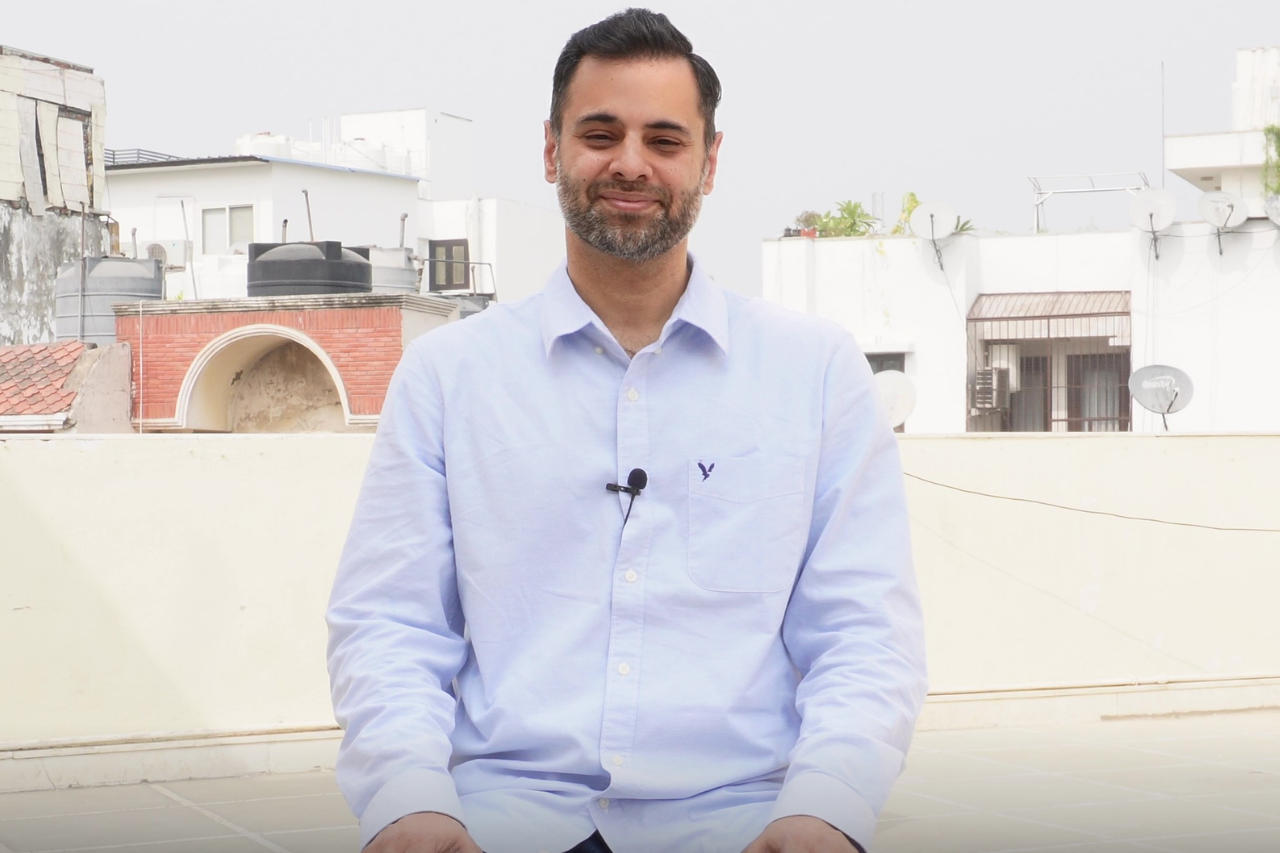Andrea.: If you say that non-dual awakening is not in the individual’s control, then why should anyone even bother with non-duality? Why do you feel the need to convey this message and talk about non-duality?
What is the point of self-inquiry or spiritual practices that claim one can spiritually awaken by practicing them? And my final question is that you say you have nothing to give. I feel you are indirectly giving me a belief system.
Jagjot.: I stand by my statement that non-dual awakening is not in the individual’s control. The non-dual awareness ceases the individual according to its own will and not because of the person’s resolve and effort to attain it. It is not an object for you to grasp.
You are not at all in control of anything, let alone “your” spiritual awakening. Therefore, you should absolutely not bother about non-duality. A person that is content and peaceful to the core does not need non-duality or any spiritual teaching for that matter. If you’re perfectly in harmony with your “being,” then there will be no need for you to know about it.
But there is doubt and confusion. Isn’t there? Otherwise, you wouldn’t have posed questions. When the mind has totally surrendered, there remain no questions, no doubts, and no need to attain anything or reach anywhere because the source of peace is realized in the here and now. You’re never apart from it. Only the mind absorbed in thinking drifts away from the peace of now.
Any attempt to make the slightest effort to attain or realize non-dual awareness is a diversion of the ego mind from the truth of the moment. Non-dual awareness is what you are. It is not something the person attains through personal effort. The problem is that we are so conditioned to effort and achievement that it is virtually impossible for us to let go of the idea of effortlessness.
It is something natural and a deliberate design of life. Remember, we’re discussing noumenon in phenomenality; therefore, the difference between the two naturally creeps into the mind. So your mind imagines a state where you rest in non-dual awareness, but no such state exists outside the mind. And the mind, by nature, is dual. It creates a division of every concept, and hence there is confusion.
You ask why I feel the need to talk about non-duality. I don’t feel the need to talk about it. This message just flows through me. I’m not in charge here. If there were a need, it would have exhausted itself long back. The message coming out of me is what is apparently happening, and so is you being at the receiving end. I could not stop this energy even if I wanted to.
Now, about your next question about self-inquiry and spiritual practices to awaken yourself. I don’t think you can follow any practice that can bring about a spiritual awakening. Spiritual awakening, for me, is not experiences of light or love that come one moment and are gone in the next.
Awakening is an impersonal realization that there is no one asleep. It is the total surrender of the ego-mind with a firm conviction that it can’t “do” anything to awaken itself. This concept, for me, is the final deliverance that brings peace in daily living – a peace independent of external or internal conditions – a peace of simply “being” without doing anything.
People who came to Ramana Maharshi either got the message or didn’t get it. For those who didn’t get the message, Maharshi prescribed self-inquiry, which is useful but is not a tool to attain enlightenment or awakening. He gave it only because people were desperate for some method or technique from the great Sage.
Most people are conditioned to believe that some form of practice or sadhana is mandatory to achieve self-realization. A majority of such people cannot sustain self-inquiry for long and give up eventually. Maharshi never stressed that self-inquiry was a practice to attain enlightenment. One needs divine grace for self-inquiry to be sincere, but till the identification with the personal separate self is strong, it will not be so.
Even Ramesh Balsekar advocated self-investigation – which was to investigate if any action that happened was your action. Both of these spiritual practices are helpful, but they cannot be used to bring about self-realization. The word “self-realization” is a misnomer because there is no personal-self to be realized.
I don’t know if self-inquiry can be called a practice because it questions the very existence of the one practicing it. Therefore, self-inquiry is just a stalling mechanism till the final deliverance or spiritual understanding happens. And it has to fail. If the self-inquiry succeeds and you reach a conclusion, you’re already lost.
So these inquiries and investigations are fake instruments designed to question and create unease. It either makes the individual interested in exploring the nature of self, or it abandons the exploration altogether to pursue another path or teaching.
You do not have the power to either start or stop self-inquiry. Even if your Guru prescribes a spiritual practice, how sincerely you will be able to do the practice is also not in your control. Forcing a practice on yourself to attain self-realization will only end up in frustration.
There is always a possibility that a sincere self-inquiry happens in an individual, which leads to surrender, but this is not universally applicable to all. In some cases, surrender happens because of prolonged suffering, while in others, it happens for no apparent reason. Therefore, I cannot prescribe self-inquiry as a method for self-realization. You are free to follow whatever path or spiritual practices you resonate with.
Now coming to your final question, I’m giving you a concept and not a belief system. You have the complete volition to investigate the concept and match it against your own personal experience. If you don’t resonate with the concept, discard it by all means.
Every written and spoken word, whether in scriptures or spiritual teachings, is merely a concept. The concept becomes your truth only if it is destined to happen through the universal will.
All concepts are communicated using a language, which is a dualistic tool. Therefore, sometimes, some concepts may appear to be instructions, but it is not so. For example, when I say, “watch your anger,” I’m not implying that anger is bad and that you have to “do” something about it. It can easily be mistaken for suppression, repression, or denial. I cannot control how others perceive and interpret my concepts.

